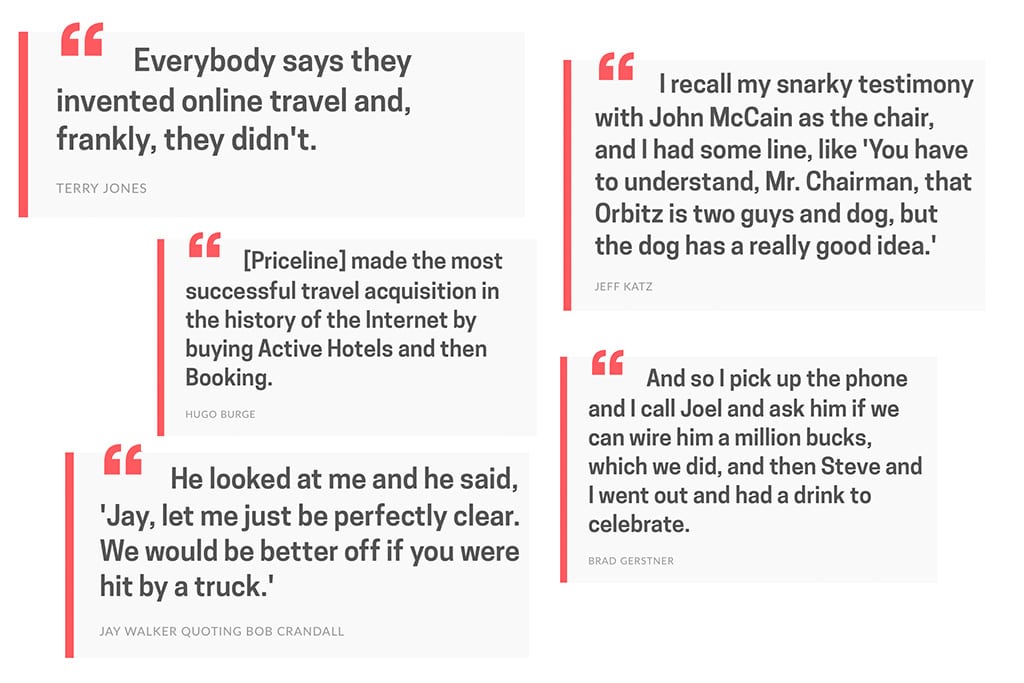The Never-Before-Disclosed Details About the Birth of Online Travel

Skift Take
We're not giving away all the good stuff. You still need to read the entire thing.
Yesterday we launched our largest project yet, The Definitive Oral History of Online Travel.
In nearly 40,000 words founders, executives, insiders, and CEOs tell a story in their own words about the creation of Internet giants such as Expedia, Priceline, TripAdvisor, and more. We definitely don’t want you to miss some of the newsy disclosures threaded throughout this extensive narrative. So for those of you who don't have a long plane ride ahead of you or an office door to help shut out distractions, we've pulled out some of the bigger revelations:
Read The Definitive Oral History of Online Travel Now
In the mid-1990s, American Airlines/Sabre and Microsoft considered a joint venture instead of separately launching Travelocity and Expedia but both American/Sabre and Microsoft wanted to be in charge and thus couldn’t come to any agreement.
Microsoft’s Rich Barton walked into a boardroom in 1994 to meet with Microsoft co-founder Bill Gates and told Gates that his travel idea to build an Encarta-style travel guide was too small an opportunity. Five years later, Barton asked Microsoft’s Steve Ballmer to commit to a $100 million brand-advertising campaign for Expedia and Barton got kicked, or laughed, out of Ballmer’s office.
When Priceline.com was looking for a celebrity spokesperson in 1997 actor Bill Cosby was the company’s first choice but his monetary demands were too steep. Priceline.com marketing team member Jord Poster’s wife had been college roommate’s with William Shatner’s then-wife so that was an informal tie that got the conversation

